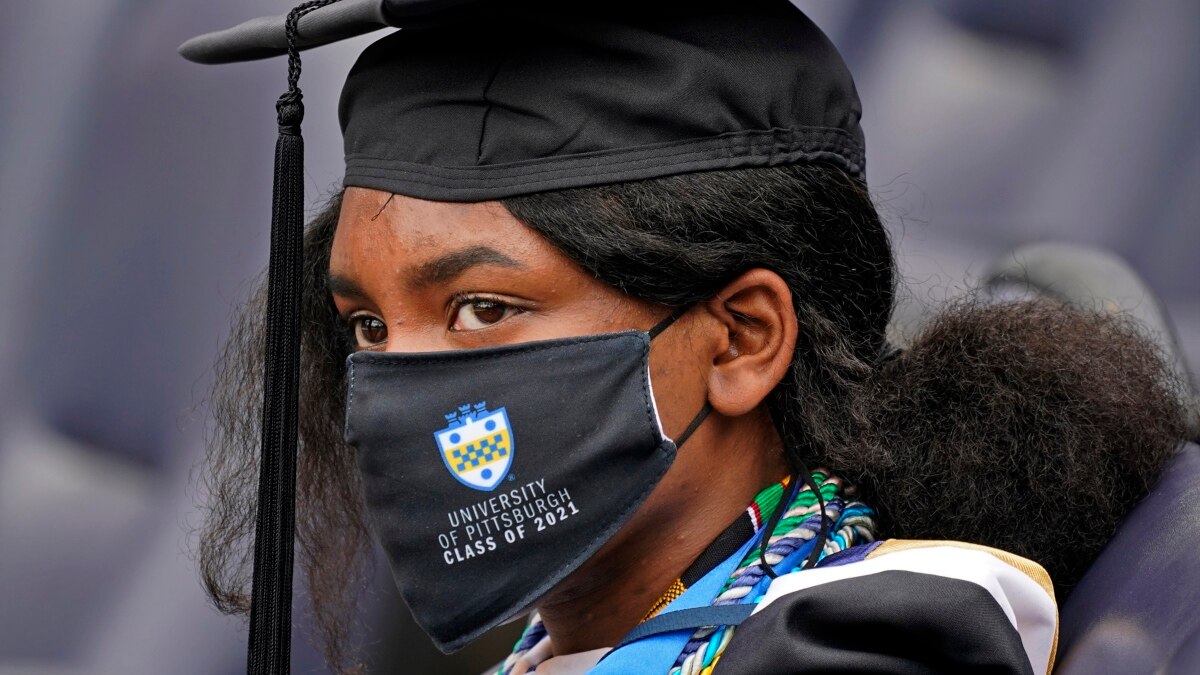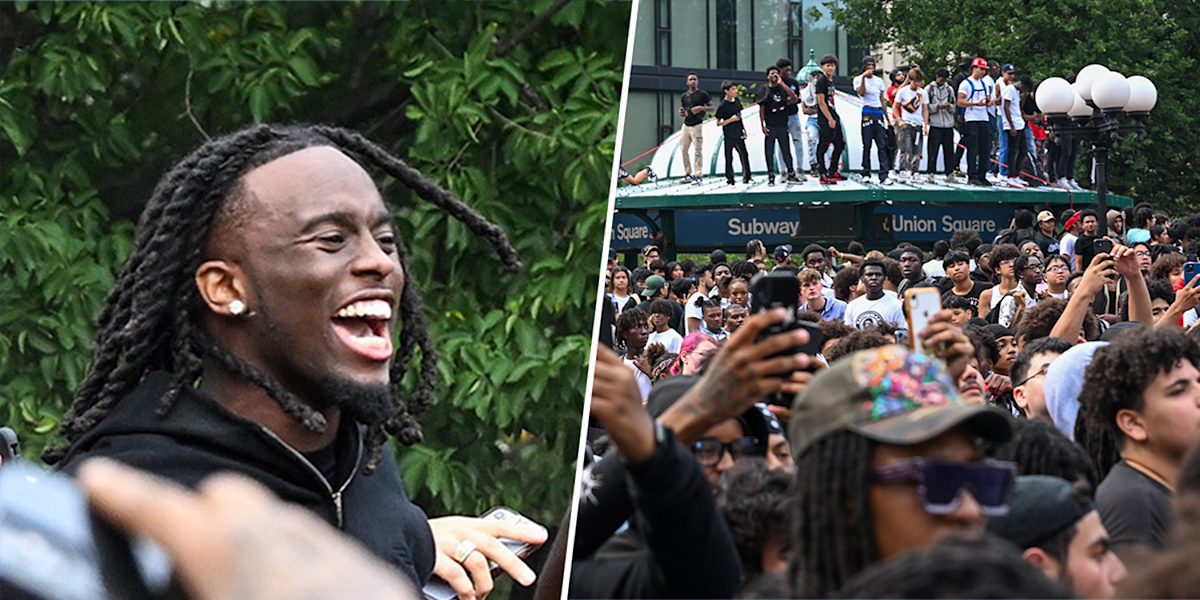Colleges Cancel Affinity Graduations: Students Preserve Traditions

Table of Contents
Why Colleges are Canceling Affinity Graduations
The decision to cancel affinity graduations is rarely simple, often stemming from a confluence of concerns. Universities cite various reasons, each carrying significant weight in the ongoing debate.
Concerns about Inclusivity and Equity
A central argument against affinity graduations centers on the concern that separate ceremonies are inherently divisive, contradicting the ideal of a unified graduating class. Critics argue that these events create an "othering" effect, potentially reinforcing existing inequalities and undermining efforts toward campus-wide inclusivity. Furthermore, legal challenges and concerns about equal access to resources and opportunities contribute to the debate.
- Universities fear lawsuits alleging discrimination based on race, religion, sexual orientation, or other protected characteristics.
- Concerns arise regarding equal distribution of resources, with some fearing that separate ceremonies might detract from resources allocated to the main commencement.
- The argument that all graduates should be celebrated equally in a single ceremony is frequently raised.
Administrative and Logistical Challenges
Organizing multiple graduation ceremonies presents significant administrative and logistical hurdles for universities. The challenges extend beyond simply scheduling additional events.
- Resource allocation, including venue booking, staffing, catering, and security, becomes exponentially more complex.
- Budget constraints often necessitate careful consideration of the costs associated with separate ceremonies, potentially impacting other aspects of university operations.
- Coordinating schedules for faculty, staff, and graduating students across multiple events poses a significant logistical challenge.
Fear of Setting Precedents
Perhaps one of the most significant concerns revolves around the potential for setting precedents. Allowing affinity graduations might open the floodgates to demands for other, potentially less easily managed, separate events.
- Universities worry about the possibility of an overwhelming number of separate ceremonies, rendering the traditional commencement ceremony less meaningful.
- The potential for requests for graduations based on various affiliations – political, social, or otherwise – presents a logistical nightmare for university administrators.
- The fear of creating an environment where individuals feel pressure to participate in multiple ceremonies, potentially impacting their overall graduation experience, is a valid concern.
Students Fight Back: Preserving Tradition and Community
Despite these challenges, students are actively fighting to preserve affinity graduations, highlighting their profound importance to marginalized communities.
The Importance of Affinity Graduations for Students
For many students, particularly those from marginalized groups, affinity graduations hold deep personal significance, going beyond simply a celebratory event. They represent a powerful affirmation of identity and belonging.
- These ceremonies offer a unique space for celebrating shared cultural experiences, heritage, and struggles.
- They foster a powerful sense of community and belonging, combating feelings of isolation and alienation that students from marginalized groups may experience on predominantly white campuses.
- Such celebrations significantly contribute to students' mental health and well-being, providing a supportive environment to celebrate their achievements.
Student-Led Initiatives to Maintain Traditions
Students are actively pursuing various strategies to continue the tradition of affinity graduations. Their resilience and determination are shaping the conversation.
- Many student groups are organizing independent celebrations outside the official university framework, showcasing community support and resources.
- Some students are partnering with community organizations to hold celebratory events that reflect the shared values and traditions of their affinity group.
- Student advocacy groups are actively lobbying university administrations, using petitions, protests, and public pressure to advocate for the reinstatement of affinity graduations.
The Power of Social Media and Advocacy
Social media has become an indispensable tool in students' fight to preserve these important traditions. It allows them to amplify their voices, raise awareness, and build a broader coalition of support.
- Students are using platforms like Twitter, Instagram, and Facebook to share their experiences, organize protests, and mobilize support for affinity graduations.
- Successful campaigns on social media have pressured universities to reconsider their decisions, demonstrating the power of collective action and online activism.
- The use of hashtags and targeted social media campaigns has helped raise awareness among alumni, faculty, and the broader public, garnering support for student initiatives.
Conclusion: The Future of Affinity Graduations and the Student Voice
The debate surrounding affinity graduations highlights the tension between the desire for inclusivity and the need to recognize and celebrate the diverse identities within a university community. While concerns about equity, logistics, and potential for creating further divisions are valid, the profound importance of these ceremonies for students, and the broader impact on campus diversity and inclusivity, cannot be ignored.
The resilience and creativity of student activism demonstrate the enduring power of the student voice in shaping campus culture. The fight to preserve affinity graduations is not merely about upholding tradition; it is about ensuring that all students feel seen, valued, and celebrated for who they are. We urge readers to learn more about the ongoing debate surrounding affinity graduations, actively support student-led initiatives, and consider ways to advocate for supporting affinity group celebrations and preserving the tradition of affinity graduations on your own campuses. Engage with these important conversations and help ensure a future where all students feel welcomed and celebrated.

Featured Posts
-
 Crystal Palaces Pursuit Of Emanuel Emegha Transfer News And Analysis
May 27, 2025
Crystal Palaces Pursuit Of Emanuel Emegha Transfer News And Analysis
May 27, 2025 -
 Super Bowl 2024 Kanye Wests Absence And The Taylor Swift Connection
May 27, 2025
Super Bowl 2024 Kanye Wests Absence And The Taylor Swift Connection
May 27, 2025 -
 Louisiana Streamer Joins Kai Cenats Groundbreaking Streamer University
May 27, 2025
Louisiana Streamer Joins Kai Cenats Groundbreaking Streamer University
May 27, 2025 -
 Terhesseg 40 Eves Kor Utan Lehetseges Es Inspiralo
May 27, 2025
Terhesseg 40 Eves Kor Utan Lehetseges Es Inspiralo
May 27, 2025 -
 They Were Every Students Nightmare The Return Of Blue Books
May 27, 2025
They Were Every Students Nightmare The Return Of Blue Books
May 27, 2025
